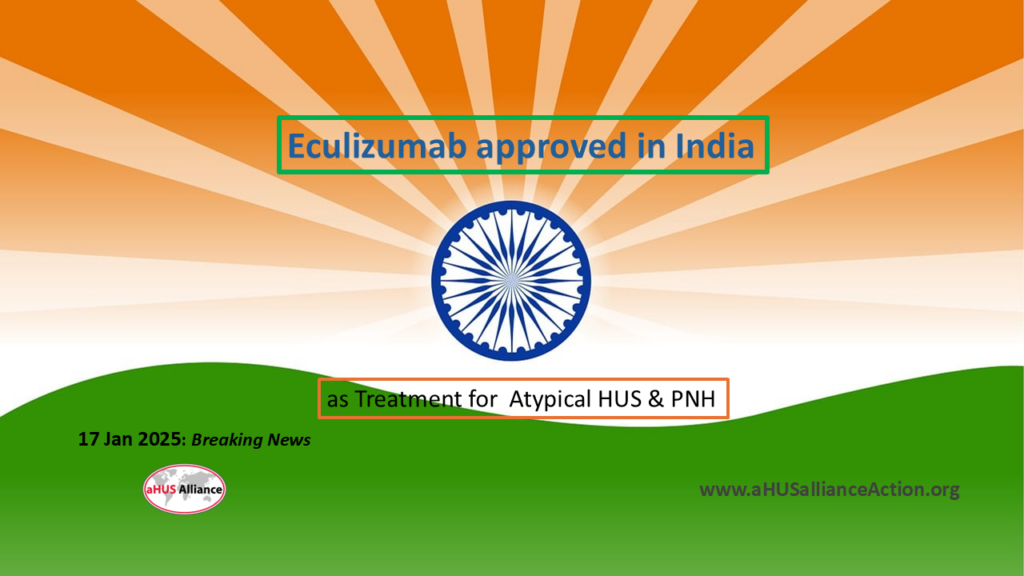
After years of waiting, eculizumab Soliris(R) has been approved by India’s Central Drugs Standard Control Organisation (CDSCO) as an approved drug to treat two conditions of complement-mediated thrombotic microangiopathy, aHUS as well as PNH. Atypical HUS advocates began in-person meetings with Alexion in 2015, after various earlier discussion, with countless discussions during the over a decade. We are beyond pleased to announce this new development for this life-threatening rare disease.
Our thanks and appreciation to the AstraZeneca/ Alexion Rare Disease teams, and especially to the aHUS advocates, investigators, clinician researchers, and policy makers who have worked for so long to bring eculizumab to India. Here’s a snapshot of this journey to bring aHUS treatment to patients in India, and questions that remain.
—-
On Drug Policy in India
Rare disease policies in India have changed in the last year, and pharmaceutical companies have launched clinical trials in India with drug candidates (such as iptacopan and crovalimab) to potentially expand treatment options for aHUS patients.
Courtesy of Kamal D Shah (founder of Atypical HUS India & co-founder of the NephroPlus dialysis company)
Article (Nov 2024) – Delhi High Court Judgement on Rare Diseases (Nov 2024)
Atypical HUS India (courtesy of Kamal D Shah): (May 2024) Soliris recommended for approval for aHUS in India
On Eculizumab approval in India
Indian Pharma Post (17 Jan 2025): AstraZeneca receives CDSCO approval to launch eculizumab in India
Medical Diaglogues (17 Jan 2025): AstraZeneca Pharma India gets CDSCO nod to import pharmaceutical formulations of Eculizumab
Atypical HUS India: the Voice of aHUS Patients & Advocates (18 Jan 2025) Soliris gets approval for sale in India
Questions & Future Considerations
Drug approval is one important step, but the topic of drug access includes many components.
*No matter how life changing a drug may be, physicians need to be able for their hospital or clinic to approve a high-cost drug for inclusion on the facilities’ formulary list of available drugs.
*How will patients and their families pay for eculizumab? This is an important topic to consider in detail for physicians and patients alike in nations: without subsidized healthcare, low resources, scarce or expensive insurance plans.
*What are the implications for patients on dialysis and for those seeking a transplant?
*How might approval of eculizumab in India affect access to other drugs, such as: ravulizumab, clinical trial candidates, or biosimilars which reference eculizumab?
We look forward to learning more details as they become available….

